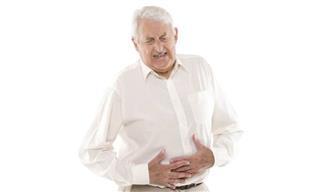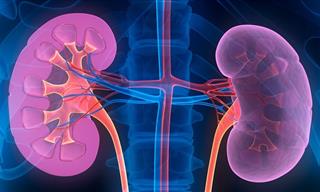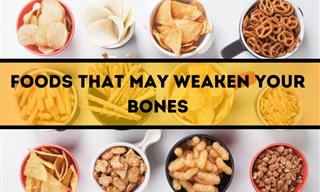Muscle cramps, characterized by involuntary and tight muscle contractions, can often be self-treated. Common causes include physical activity, dehydration, and menstrual cycles. Addressing muscle cramps can involve stretching, massaging, and consuming key nutrients like potassium, sodium, calcium, and magnesium, which are electrolytes. These can be found in various foods. Here are the best foods for helping you forget all about those muscle cramps.
Bananas
Our number 1 choice is Bananas. Bananas are a powerhouse when it comes to combating muscle cramps, thanks to their high potassium content. This essential mineral plays a crucial role in muscle contraction and nerve function. In addition to potassium, bananas also offer a good dose of magnesium and calcium, two other electrolytes vital for muscle health and cramp prevention. The presence of these minerals makes bananas an ideal snack for athletes and those engaged in regular physical activity.

Their easy accessibility makes them a popular choice for quick relief. Their natural sugars provide a quick energy boost, while the fiber content aids in sustained energy release and digestive health. Bananas are also convenient and versatile; they can be eaten on their own, added to smoothies, or sliced over cereal and yogurt. Their portability and ease of consumption make them a practical choice for on-the-go nutrition, especially for those looking to replenish electrolytes and energy stores before, during, or after exercise. The combination of vital nutrients, energy-providing carbohydrates, and ease of consumption makes bananas an all-around excellent food for managing and preventing muscle cramps.
Sweet Potatoes and Other Tubers
In comparison to bananas, sweet potatoes boast approximately six times more calcium and also supply potassium and magnesium. Similarly, regular potatoes and pumpkins, which are high in these three nutrients, contain significant water content, aiding in hydration.
Avocados
Avocados, surprisingly classified as berries, contain roughly 975 milligrams of potassium, surpassing both sweet potatoes and bananas. This high potassium content is crucial for muscle function and heart health. Avocados can be used as a healthier substitute for mayonnaise in sandwiches or as a salad topping. However, their high fat and calorie content should be noted.
Legumes
Legumes, including beans and lentils, are magnesium-rich. A cup of cooked lentils contains about 71 milligrams of magnesium, while a cup of cooked black beans has nearly 120 milligrams. Besides their magnesium content, legumes are high in fiber, which can alleviate menstrual cramps and help regulate blood sugar and lower bad LDL cholesterol levels.

Cantaloupe and Similar Fruits
Cantaloupe and other similar fruits provide a wealth of potassium, along with magnesium, calcium, a bit of sodium, and plenty of water. These components are essential, especially during exercise, as the body loses sodium through sweat. Consuming a cup of cantaloupe post-exercise can be beneficial.
Watermelon
Watermelon is an excellent choice for hydration due to its high water content, making up about 90% of its weight. Besides its hydrating properties, watermelon is a modest source of potassium, a key electrolyte that aids in muscle function and recovery. It's particularly useful in replenishing fluids and nutrients lost during exercise, making it a practical and refreshing post-workout snack. The natural sugars in watermelon can also provide a quick energy boost.
Dairy Products
Dairy products like milk, cheese, and yogurt are natural sources of essential electrolytes, including calcium, potassium, and sodium. These nutrients are vital for muscle contraction and relaxation, helping to prevent and alleviate muscle cramps. Dairy products are also a good source of protein, which is crucial for muscle repair and recovery after physical activity. The hydrating nature of milk and yogurt can additionally contribute to maintaining fluid balance, particularly important for those engaged in regular physical activity.

Pickle Juice
Pickle juice has gained popularity among athletes for its supposed quick relief of muscle cramps. It is high in sodium and water, which are thought to replenish electrolytes lost during intense exercise. The exact mechanism behind its effectiveness against muscle cramps is still debated, but recent research points to a potential neural response triggered by the juice, rather than direct replenishment of electrolytes. Its high vinegar content might stimulate receptors in the mouth and throat, leading to a neurological response that eases muscle cramps.
Leafy Greens
Leafy greens like kale, spinach, and broccoli are packed with calcium and magnesium, two minerals essential for muscle health. These greens can help in preventing muscle cramps and also provide benefits during menstruation, as calcium has been shown to help alleviate menstrual cramps. Additionally, leafy greens are rich in vitamins and antioxidants, which contribute to overall health and may aid in reducing inflammation, further benefiting muscle recovery and function.
Orange Juice
Orange juice is more than just a refreshing beverage; it's a potent source of potassium, with nearly 500 milligrams per cup. Many brands of orange juice are also fortified with calcium, enhancing its cramp-preventing properties. The hydration factor of orange juice, combined with its nutrient content, makes it a suitable drink for post-exercise recovery. The natural sugars in orange juice provide a quick energy source, while the vitamins, particularly Vitamin C, support overall health and immune function.
Nuts and Seeds
Nuts and seeds, like beans and lentils, are great magnesium sources. For instance, an ounce of toasted sunflower seeds has about 37 milligrams of magnesium, while roasted, salted almonds have about double that amount. Many nuts and seeds also contain calcium and magnesium.
Oily Fish
Oily fish such as salmon, trout, and sardines are excellent sources of potassium and sodium, two important electrolytes for muscle function. A 3-ounce serving of cooked salmon, for instance, contains about 326 milligrams of potassium and 52 milligrams of sodium. These fish are also rich in omega-3 fatty acids, which have anti-inflammatory properties that can aid in muscle recovery and improve blood flow. This is particularly beneficial for muscle health and can assist in preventing cramps and improving overall cardiovascular health.

Tomatoes
Tomatoes are another food high in potassium and water, making them effective in muscle cramp prevention. Drinking a cup of tomato juice can provide approximately 15% of the daily recommended value of potassium, along with necessary hydration. Tomatoes also contain lycopene, an antioxidant with potential health benefits including reduced risk of heart disease and certain types of cancer. The combination of hydration, potassium, and antioxidants makes tomatoes a healthy choice for maintaining muscle function and overall well-being.
Hydration and Sports Drinks
Finally, it’s important to note that daily water intake recommendations are about 11.5 cups for women and 15.5 cups for men. This includes water from beverages and food sources. Instead of sugary sports drinks, for moderate exercise, opting for coconut water can provide necessary electrolytes without added sugar.
 Go to BabaMail
Go to BabaMail




























